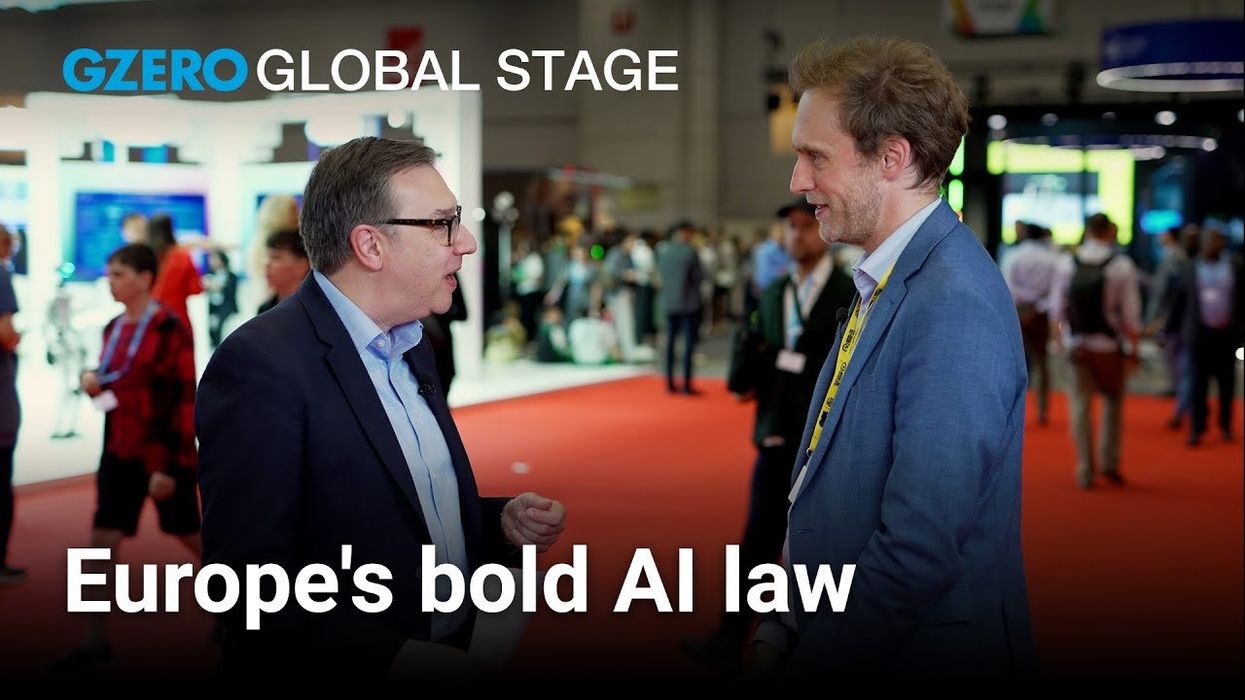AI For Good Summit
Europe’s AI Act: World’s first guardrails or just a flashy head start?
“We wanted to be first with a flashy AI law,” says Kai Zenner, digital policy advisor in the European Parliament. Speaking with GZERO's Tony Maciulis at the 2025 AI for Good Summit in Geneva, Zenner explains the ambitions and the complications behind Europe’s landmark AI Act. Designed to create horizontal rules for all AI systems, the legislation aims to set global standards for safety, transparency, and oversight.
Jul 09, 2025


